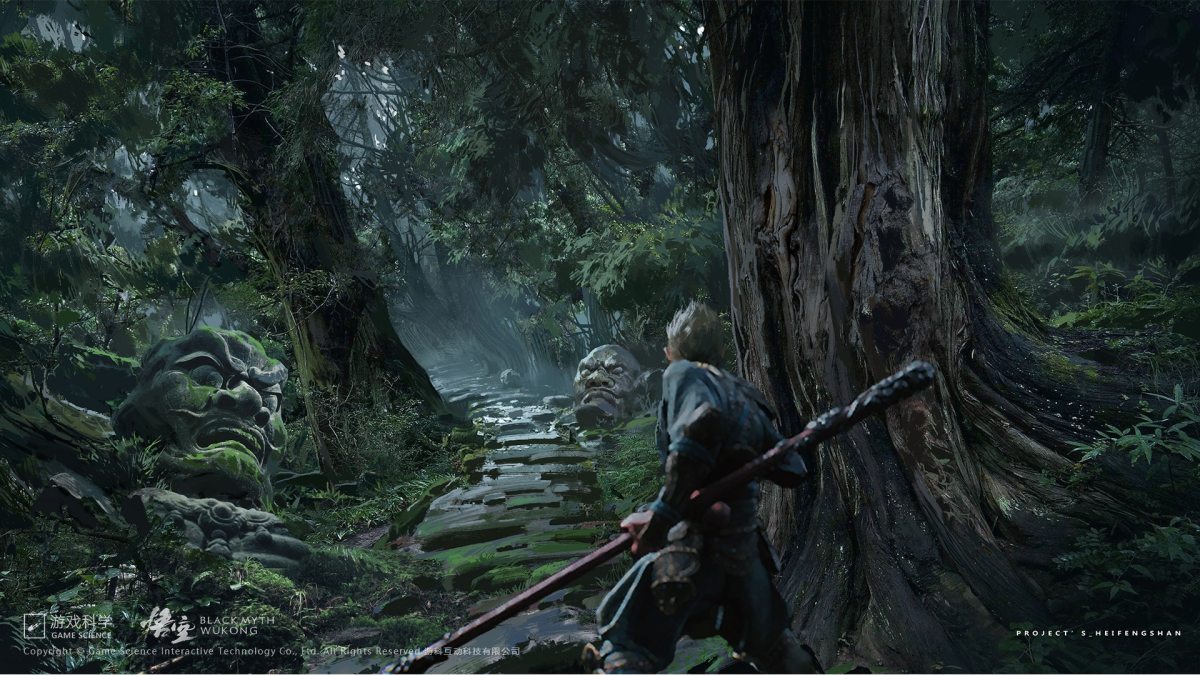After just two public appearances, Black Myth: Wukong is firmly established as a game worth keeping an eye on. On IGN’s YouTube channel alone, its two trailers have attracted more than 10 million views, to say nothing of the hype being built up by the gaming media. It’s emblematic of an emerging group of Chinese games that are looking like legitimate competitors to the established AAA market: Genshin Impact, Project DT, Bright Memory: Infinite, and Tale of Immortal, to name just a few recent headline-grabbers.
At the same time, Chinese conglomerates like Tencent and NetEase are buying their way in through a series of capital injections, buyouts, partnerships, and investments in established, respected studios like Bohemia Interactive, PlatinumGames, Dontnod Entertainment, Quantic Dream, and Epic Games.
And yet, the broader gaming industry seems slow to respond — not necessarily ignorant of China’s growth, as demonstrated by Microsoft’s exclusivity agreement on Bright Memory: Infinite or Sony’s backing of F.I.S.T.: Forged in Shadow Torch, but curiously ill-prepared. Microsoft particularly has struggled outside the Anglosphere, and Sony spent the last generation pivoting away from Japan to focus more on the U.S. market.
I remember one thing very clearly from the discourse around the Gillard Government’s 2012 Defence White Paper, Australia in the Asian Century. It is Julia Gillard’s preface comment: “Whatever else this century brings, it will bring Asia’s rise.”

Gillard wasn’t the first to make the claim, but it has rung increasingly true in social culture through the growing mainstream popularity of anime, K-pop, and K-dramas. In particular though, China has become a dominant presence in global geopolitics. The country has launched veiled threats against the autonomy of Hong Kong and Taiwan, while it uses its economic power to push back against the U.S., Australia, and other countries.
China’s explosive return to global relevance over the past few years has been powered in part by the extension and flexing of soft power relationships. Rather than using military might to subdue competitors, the government is running power plays of influence, best demonstrated through the Belt and Road Initiative — a controversial infrastructure project with the stated aim of creating new global trade routes and cultural exchange opportunities.
Video games offer an excellent opportunity for China to further those soft power ambitions. After all, cultural exports have been a key pillar of America’s global dominance over the past century. So far, there’s been little outward sign of Chinese government support of video games (though the issues with Devotion suggest that Big Brother is watching), with the aforementioned projects largely earning their viral reach seemingly independently.
It would be folly, however, to ignore the platform that concerted government intervention could provide. While the contexts are entirely different, we need only look to the pushing of disinformation campaigns from state actors in recent years to show how the right messaging and the right targeting can shape public narratives. If games carry implicit pro-China themes, the government may see opportunities to further its agenda through direct support and push products through existing viral marketing channels.

Setting the possibility of that kind of intervention aside to focus wholly on the games themselves, some Chinese developers have released hugely popular mobile games in recent years, while major publishers have long relied on outsourcing work to China. Both of these developments have enabled Chinese studios to increase their expertise, capacity, and awareness of market trends. We have seen Western workhorse studios like Bluepoint Games or Ready at Dawn cut their teeth on remasters and low-rent spin-offs. There’s no reason not to assume that Chinese studios will follow the same trajectory of working on more significant projects and original IP sooner rather than later.
Meanwhile, in the broader discussion of culture and soft power, video games appear to have a much greater capacity to make inroads than films. For one, the contexts of creation are easy to ignore in video games. In the same way pervasive cultures of crunch and discrimination in game studios are treated as a talking point more than a barrier to a player’s enjoyment, it’s only the most hardcore xenophobes who will dream of boycotts of Chinese games. Moreover, the design of a video game character is limited only by an artist’s imagination and skill; the freedom to make a character look and sound however they want means that implicit biases arising from appearances and accents need never manifest.
Subtitling and / or awkward dubbing are the other major obstacles to foreign films gaining a mainstream audience in the Anglosphere, and those are basically non-issues in games because both are established features of the medium’s identity. More than a few games have silent protagonists as a means of facilitating a player’s immersion in the world. Other game franchises, like The Legend of Zelda and Yakuza, have omitted English voice acting for most of their histories for reasons ranging from aesthetic to budget to authenticity. To emphasize the gaming audience’s acceptance of subtitles, we need look no further than my colleague Andrei Pechalin’s recent article on the subject.

And even if every factor I’ve outlined thus far is based on flawed or false premises, there is the matter of market scale. China’s population is greater than those of the U.S., Japan, and the entirety of Europe combined. With the nation continuing to prosper, the pool of potential players is simply too big to ignore. Domestic products have the advantage on that front.
What I find curious is that, amidst all of the toxic rhetoric about China and its growing investment in Western developers, there’s little discussion of the broader situation — China is making inroads into the gaming industry, but the established industry is not making substantial inroads into China. To be fair, that process can only be complicated by the Great Firewall and China’s foreign investment laws, but there still seems to be too little movement, too much of a focus on trying to make Western products that appeal to a Chinese audience.
On the other hand, the industry is going through tectonic upheavals that are reshaping the business landscape: Microsoft’s acquisition of Bethesda, Sony’s more measured growth strategy, the de-merger of Sega from Sammy, Embracer Group’s continued efforts to vacuum up every independent studio, and Dontnod, Quantic Dream, Remedy, Avalanche, and more all seeking to become publishers in their own right. Perhaps the current mood for mergers and acquisitions is a sign of awareness and preparation for what is inevitable?
Consolidation will help, but whether it’s enough to maintain a noteworthy market presence is a whole other question. Companies that don’t embrace the inevitable will surely not flourish as readily as those that do, but they will survive. After all, no situation is dire enough for the stark binary of “pivot to China or die.”






Published: Feb 12, 2021 12:00 pm